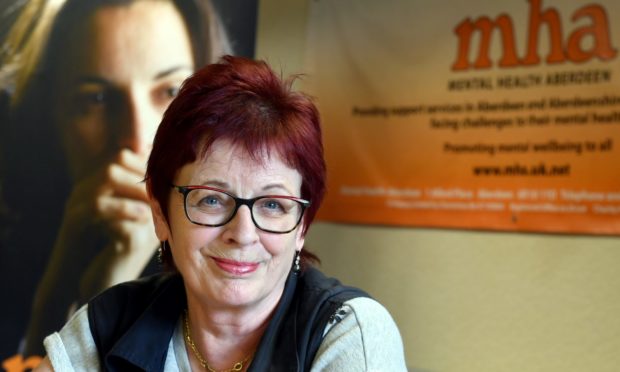A mental health charity boss has issued a warning over “lonely and isolated” students currently embroiled in a Covid-19 outbreak at Aberdeen University and called for the institute to be “pro-active” in providing support.
Astrid Whyte, chief executive of Mental Health Aberdeen, expressed concern over the impact on students facing a lengthy quarantine at Wavell House at Hillhead Student Village – particularly those who have arrived from rural areas.
NHS Grampian confirmed that 16 cases of Covid-19 have been identified, while Aberdeen University said 72 students were currently in self-isolation.
It is understood the total number of cases is split up into around two or three smaller Covid-19 clusters.
The health authority added there was “currently no evidence” of spread to the wider community and that control measures have been implemented to curb the risk of further transmission.
Ms Whyte said: “If students are shut up in these small rooms in halls, it will be quite lonely.
“There will be students from rural areas who’ve never been in town.
“They could be in a completely different environment and have nobody close, nobody near, and maybe all they have is the internet and social media.
“It will be really hard on them and I worry for them. I really hope the university has been proactive and put support measures in place to help them cope.”
Ms Whyte also pressed the university to provide “crisis intervention” for students with anxiety over the isolation and offered her charities services, if required.
She continued: “The fear of the virus is bad enough, but then the fear over infecting others must be great. My fear is that blaming will occur, which is not helpful.
“I’m hopeful Aberdeen University is being pro-active, but beyond that we are also here as another source of support.”
The mental health chief also said the situation for students would “weigh on her mind” as a parent due to the “different issues they could be facing”.
Ms Whyte stressed that being watchful of people’s mental health “is so important in these settings”.
“All higher education means a period of transition and change is always difficult”, she said.
“Some may have social issues or difficulty engaging with new people and for some this might be their first time away from home, so there’s lots of different concerns.
“Loneliness is a huge factor. It doesn’t always mean that you are always alone but you can still be very lonely in this type of setting.
“All of this, with the ongoing issues it creates and all the current worries young people have to deal with, has the potential to increase the stress load on a person.
“If I were Aberdeen University now, dealing with an outbreak, I would now mobilise social care staff and ask, ‘how do we support people who are stuck in there?’
“How do we make it tolerable for them and less scary and frightening? So that it is not then facing the added pressure of potential suicide because someone had been forgotten.”
